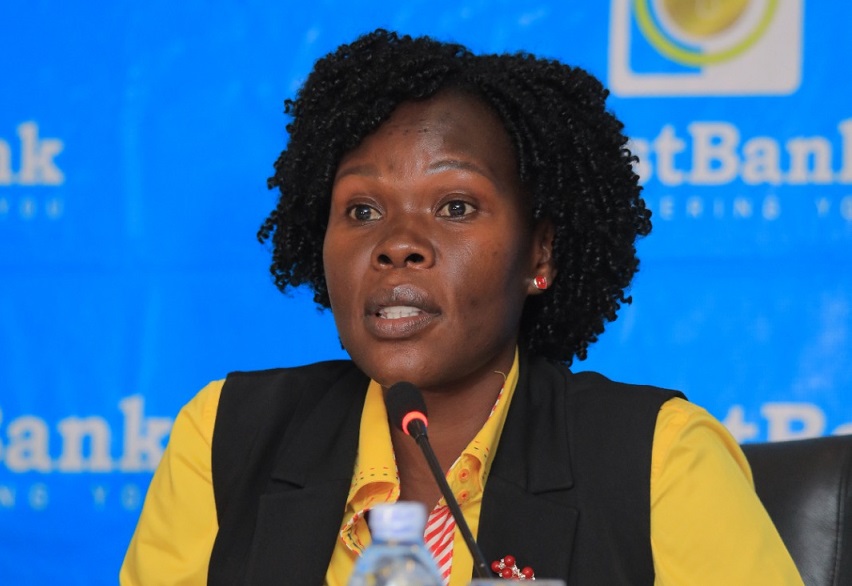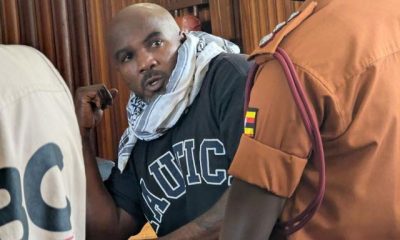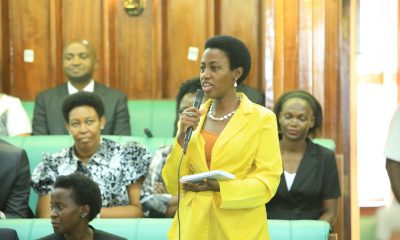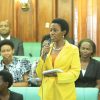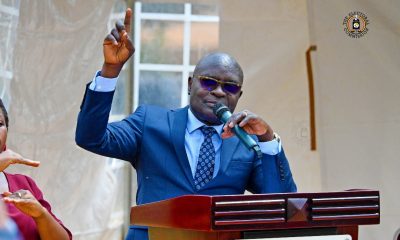Politics
Minister Anite; ‘We Have The Magye’ I Never Knew the Impact of These Words!
In a rare moment of candour, Minister of Investment Evelyn Anite has expressed regret over her now-infamous phrase, “we have the Magye,” uttered during the heated constitutional amendment debate that removed presidential age limits.
Speaking in a recent interview with NTV, Anite painted a vivid picture of a politically charged atmosphere, where fear and urgency drove her actions, culminating in a statement she now acknowledges was ill-considered.
“I didn’t say that,” Anite began, before correcting herself. “I need to put this back in context. I need to put this back in context.” She recounted the escalating tension surrounding the proposed amendment, a process met with fierce opposition and threats of violence. “Every time we made an attempt to amend the constitution, there was aggression from the opposition, violence, and they would attack whoever started it.”
Anite described a climate of fear, where even proposing the amendment was met with hostility. She recalled a pivotal moment during a meeting with President Museveni, where the question of his potential departure loomed large. “At this point, it dawns on me that actually President Museveni can leave us, and if he decides and says, ‘I am not running,’ what’s next?” she said, her voice reflecting the anxiety she felt at the time.
Driven by this fear, Anite and her allies, including Peter Ogwang, embarked on a campaign to amend the constitution. However, the narrative quickly shifted from the merits of the amendment to threats of violence against its proponents. “I watched honourable Allan Ssewanyana, Honourable Nsereko, Honourable Nambooze, among others. They had tied their head with those Red Berets and were threatening anybody,” she recalled.
Faced with a demoralised group and a need to shift the narrative, Anite made the now-controversial statement. “We have the Magye. If all these options fail, we even have the Magye.” She explained that she had heard the term used in hushed tones, but didn’t fully grasp its weight. “I didn’t know that it was so gross or so catchy,” she admitted.
The backlash was immediate. “As soon as I finished and walked out, I started getting my phone buzzing. I remember people calling me, and I’m panicking.” Anite described feeling like a “leper,” ostracised by her own camp. “I regret that,” she stated, emphasising the unintended impact of her words.
However, Anite also recounted President Museveni’s support, who reassured her that she had spoken in defence of national security. “He says, ‘No, don’t worry, we’ll give you the protection.’ And indeed, he gave us protection,” she said.
Despite the president’s backing, Anite faced further criticism during a cabinet meeting. “I was being attacked. Why did I have to say this? Now I’m making the government look bad,” she recalled. Again, President Museveni intervened, explaining the context of her statement and calming the storm.
Ultimately, Anite’s reflection offers a rare glimpse into the complex and often fraught political dynamics that shaped a pivotal moment in Uganda’s recent history. While she stands by the intent behind her words, she acknowledges the unintended consequences, a testament to the power of language and the weight of political rhetoric.
Comments



